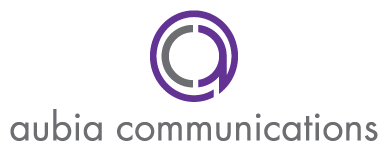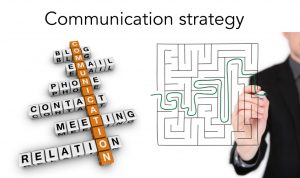
In honor of the Public Relations Society of America’s observance of Ethics Month, the Aubia Communications Blog will spend September delving into the topic. I start with this post about what ethics actually is, and then I follow up this discussion with the process in making an ethical decision and a case study comparison into professional good vs. bad ethical decision making.
“Ethics is something everyone talks about having but no one can seem to define.” From my ethics classes in college to professional development seminars, I’ve heard this sentiment many times. Though we can face basic dilemmas that have clear right and wrong decisions, ethics in public relations gets into the gray areas of morality.
You would know that it would be clearly wrong to distribute a press release that outright lied about your company’s profitability, but what about drafting a speech for your CEO to the investors during the annual meeting that included unclear language that could potentially mislead? What you’ve drafted isn’t incorrect nor breaking any laws, but it may not be ethical. There is a thin gray line to walk between where black and white meet.
What is ethics?
From its strict dictionary definition, ethics is the moral principles that guide a person’s behavior or the conducting of an activity. The principles can originate from upbringing, religion, laws, conventional wisdom and one’s own moral compass.
Ask 100 people what ethics means to them, though, and you’re likely to receive 100 different responses. Ethics is a difficult concept to define definitively.
Drilled down to its foundation, ethics is about doing what’s right, which is a subjective decision. What’s right for me may not be right for the next person. What I see as morally repugnant might be perfectly acceptable to another.
Regardless of differing opinions, there are three levels of ethics:
1) Pre-Conditioned
Ethics at this basic level is what we’re taught as young children, how we’re conditioned. Little Johnny knows it’s wrong to steal a cookie from the cookie jar. He knows that if he does and he’s caught, there will be a punishment. He doesn’t steal from the cookie jar due solely to avoid punishment. Little Susie knows that if she does her chores, she will receive her allowance. She does her chores solely to receive her reward.
2) Conventional
As we grow older, the black and white begin to fade and we face dilemmas on the conventional level of ethics. To use the old adage, ethics becomes what you do when no one is looking.
3) Post-Conventional
At this highest level of ethical decision making, we no longer just look to external factors to determine what is right and wrong. We begin to think for ourselves and judge our decisions by our own frame of reference. In the words of one of my professors, “sometimes you have to forget principle and just do what’s right.”
How can you uphold ethics in public relations?
PR professionals are continuously judged for the profession’s negative connotation with spin. In an effort to combat this incorrect perception, we should all strive to work with the most integrity possible. Adhering to the PRSA Code of Ethics provides the guidelines to follow in ethical decision making and a board of advisors to contact for discussion in such matters.
To continue to build the reputation and establish trust in customers, it’s important for businesses to understand what violates ethics in public relations. By refraining from the following actions, businesses and their public relations professionals can uphold an ethical commitment.
1) Astroturfing/Front Groups
If you compensate anyone to speak on your behalf in the public domain, then that needs to be disclosed. If not, you’re astroturfing. If your own people or if you hire others to make positive comments about you on review sites without disclosing who they are, you’re astroturfing. If you put together a local group to testify on your behalf at a public meeting without disclosing it’s funded by you, you’ve created a front group. These are all against ethics in public relations.
2) Whisper Campaigns
Have a great product? Wonderful! Want to show how it’s better than the competition? Absolutely! Want to be a secret source as to all the faults in your competitor’s product? No!
It’s fine to share information about your product and how it might outperform your competitor’s but you must be the face to those facts and be able to stand behind your assertion. To slam your competitor and not want to be identified, to secretly hire PR folks to pitch the media in attack of your competitor is creating a whisper campaign. It’s unethical and it will erode your trust with the media.
3) Release False Information or Withhold Important Information
If you ask a PR professional to develop a communications plan to release information known to be false or not to release information that would be of importance and the public has a right to know, you are asking that person to commit unethical behavior. Allow your PR professionals to do their job correctly and ethically by allowing them to submit factual data and information that is vital to a consumer’s decision-making process.
What do you think about ethics in public relations?
To be trusted, to preserve your reputation, adhere to the PRSA Code of Ethics anytime you or your organization is working in or with public relations. How do you define ethics? What does it mean to you to practice ethics in public relations?



